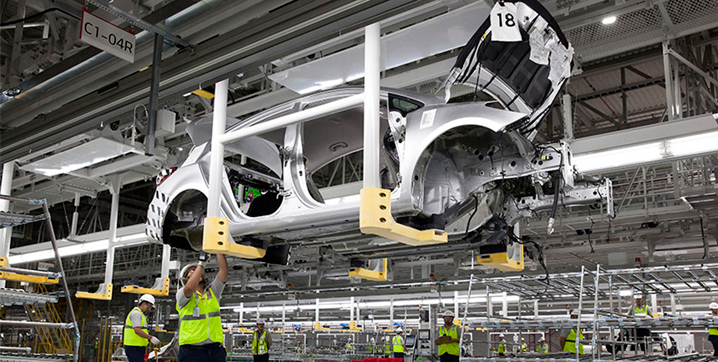RIO DE JANEIRO, BRAZIL – Steelmakers are renewing contracts with automakers for quarterly or half-yearly periods, which traditionally have been in force annually, according to information from the auto industry.
The change in frequency represents a rupture in the tradition by which business agreements between two of the largest sectors of Brazilian industry are governed.

Until now, the steel industry would set a price to be paid throughout the year by vehicle manufacturers, irrespective of the volatility in commodity prices.
However, with prices on the international market rising both for the product they sell and the raw materials they consume, particularly iron ore, the system is no longer advantageous for steelmakers.
In the current cycle, in which demand exceeds supply of commodities, freezing prices for a prolonged period means wasting opportunities to review the values charged to customers upwards, as well as compromising profitability, given the appreciation of iron ore. Therefore, the chosen path was to shorten the deadlines between readjustments.
According to a survey by S&P Global Platts, an agency that monitors variations in the value of steel products, the price of hot rolled steel coil has more than doubled (130% increase) over the past 12 months in the spot market in Brazil.
Steel is one of the main materials used in the production of automobiles, machines and household appliances, such as refrigerators and stoves.
Since the start of the year, it has increased 46%, and the steel industry sees room for further hikes in the coming months, as stated by Usiminas’ management in a conference call with analysts in April.
Comparison
The prices paid by automakers, according to their own reports, are close to or, depending on the contract, higher than the cost of imported steel, including all expenses up to its delivery at the plant. However, the difference is not as significant as to trigger a wave of imports, at least for the time being.
Due to the challenges associated with imports – such as exposure to exchange rates, the volatility of spot prices and freight, in addition to the risks of delays, more common during the pandemic, of the already long product delivery times – domestic steelmakers are able to charge more than the international price of steel converted into Brazilian reais.
As this difference, the so-called premium, has been observing a 10% cap, and as the availability of steel supplies in international markets compatible with the plants’ requirements has not been easy to find, automakers and large auto parts suppliers have been favoring domestic steel.
The situation therefore places the steel sector in a favorable position to negotiate prices. It will be easier to implement new readjustments if, when it sits down again with the automakers – possibly within three months – China has further tightened global supply with restrictions imposed on steel mills to meet climate targets. Earlier this month, Beijing pulled incentives for exports of the product to retain more steel in the country.
On the automakers’ side, hope lies in the continuity of the recent recovery of the Brazilian real, which would lower the prices of imported products, thereby putting pressure on domestic steel.
According to information shared by the purchase departments of different automotive groups, the shortening of deadlines for price revision is a “joint” step taken by steelmakers. ArcelorMittal, Usiminas and CSN are the automakers’ largest suppliers.
When asked by the report, Usiminas said it negotiates directly with each customer and does not detail its commercial policy, while ArcelorMittal said it does not comment on contracts with its customers. For its part, CSN did not reply to a request for comments.

